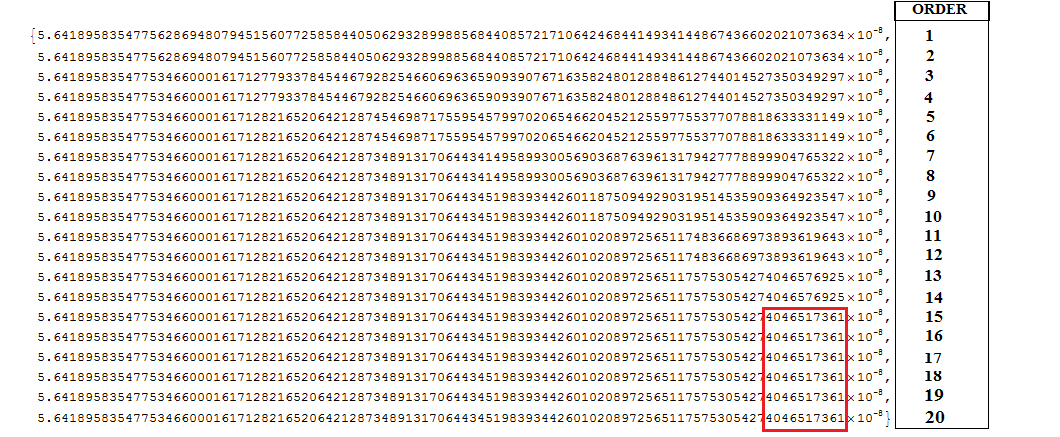Now we testing simple case and verify are they correct.
DIGITPRECISION = 100;
ORDER = 20;
NUMBER = 10^7;
sol2 = Table[ser2 = Normal@Series[Exp[x^2]*Erfc[x], {x, Infinity, k}];
s2 = Block[{$MaxExtraPrecision = Infinity}, N[ser2 /. x -> NUMBER, DIGITPRECISION]];
ANSWER = s2, {k, 1, ORDER}]; m = Last[Counts[sol2]];
If[TrueQ[m >= 3], "The required precision is obtained", "Not enough ,increase ORDER"]
(*The required precision is obtained*)
sol2

In red column last digits (...4046517361) repeated 6 times ,Oder 15 it's enough to precision 100.
You can become more secure and write in last "code":
If[TrueQ[m >= 5], "The required precision is obtained", "Not enough ,increase ORDER"]
Ps. My English is bad sorry :P